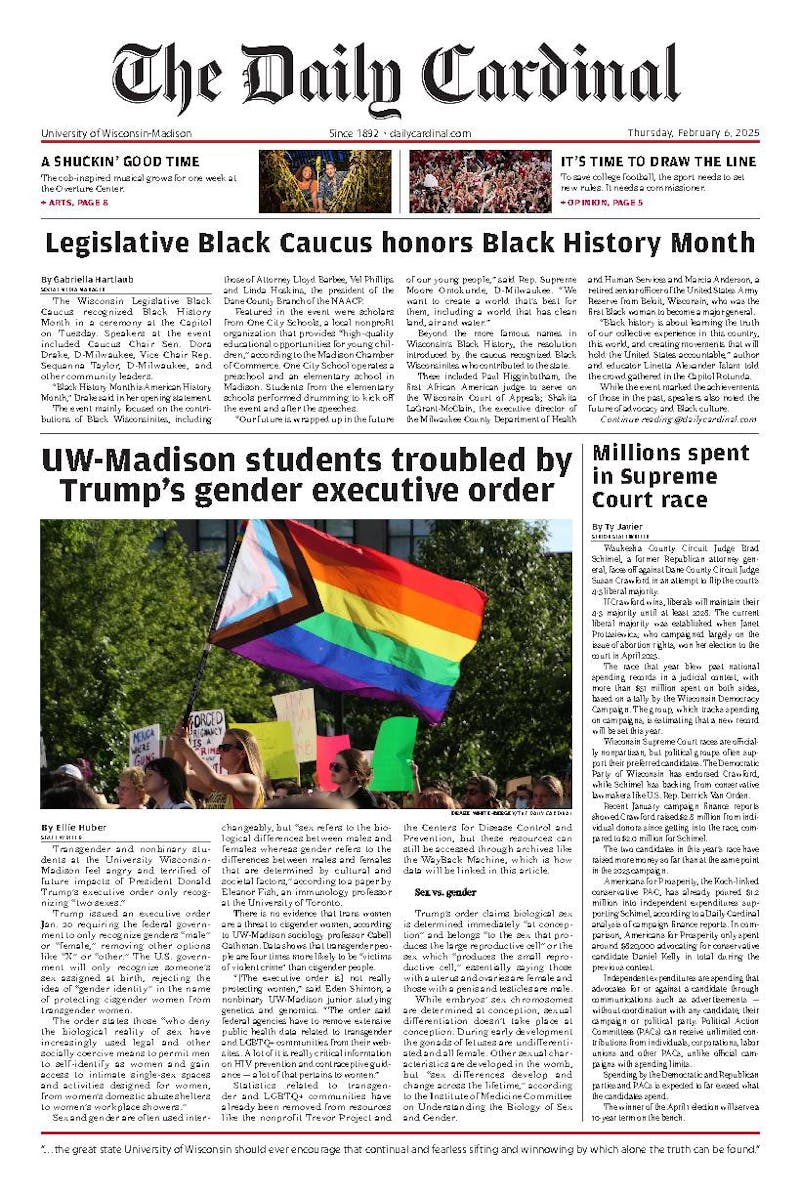After months of town halls and city meetings, the Mifflin Street Block Party is now less than two weeks away. It is clear the rules have changed, but how? City officials cleared up Sunday how a party attendee can enjoy the annual block party without running into trouble with the police.
A major change from last year’s party is that open intoxicants are not allowed on the public street, which extends from sidewalk to sidewalk.
If party attendants leave their property with alcohol, they will be arrested or given a ticket without warning, according to Madison Police Department Chief of Police Noble Wray.
If party attendants are caught drinking underage, they will be fined $177, and residents will be fined $366 for allowing underage drinking on their property, according to the Madison Police Department. Residents who sell alcohol will be fined $681.
Only residents and their invited guests can drink on the front or back yard. Police can also ticket people on private property who are not guests of the resident.
“Police are taking a zero tolerance approach to any infractions,” Ald. Mike Verveer, District 4, said.
While police have always enforced city ordinances, students can expect additional ticketing because more officers will be on duty, according to Ald. Scott Resnick, District 8.
Underage drinking, drinking on public property, providing alcohol to minors, glass bottles on the street and selling alcohol are also prohibited.
Resnick said police will also ticket for public displays of intoxication, disorderly conduct, public urination and trespassing.
In addition to the standard rules, a nuisance party ordinance aimed to restrict out-of-control house parties is now in effect. A party is classified as a nuisance if it violates one of 17 criteria such as throwing objects from balconies or amplified noise.
If residents hosting a house party play music too loudly from speakers, police can issue noise citations without warning, according to Wray.
People also need to be able to move freely through house parties to “maintain a safe environment,” according to Wray. If police or fire department officials see overcrowded houses, balconies or porches, they will break up the party and cite anyone violating city ordinances attending that party.
One way to avoid house party violations is to voluntarily sign an agreement with the police where residents can request police assistance without being punished for violating city ordinances. A Mifflin planning group and police are drafting the House Party Protection Plan.
“If you invite the cops into your house, they won’t be looking for ordinance violations of the resident that day,” Verveer said.
Resnick said while city ordinances will likely be violated at the block party, he encourages students to maintain a safe environment.






